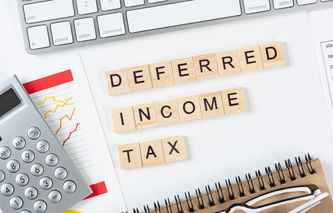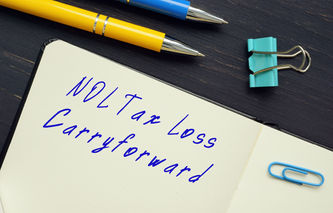Definition
The financial accounting term loss carryback refers to an income-averaging provision that allows a company to apply a net operating loss to the preceding two years. When a net operating loss occurs, an income-averaging provision of the tax law allows companies to carry the amount back two years and receive an immediate tax rebate.
Explanation
Also known as a NOL, a net operating loss occurs when a company's taxable expenses are in excess of its taxable revenue. Since companies are required to pay income taxes when profitable, the tax law provides some relief when operating at a loss. There are two methods a business can use to recapture a portion of their previously paid income taxes: a loss carryback or loss carryforward.
With a loss carryback, the business applies the net operating loss to each of the preceding two tax years. When the current tax year's operating loss is applied retroactively to the prior years' returns, the business is provided with a near term tax rebate.
Example
In the current tax year, Company A suffered a net operating loss of $9,000,000 and has decided to file a loss carryback with the IRS. Company A's taxable income in the preceding two years is shown in the table below:
Taxable Income | Tax Rate | Income Taxes Payable | |
Year 1 | $6,000,000 | 40% | $2,400,000 |
Year 2 | $8,000,000 | 40% | $3,200,000 |
The tax refund generated by the carryback would be calculated as:
Year 1 | Year 2 | |
Taxable Income | $8,000,000 | $6,000,000 |
Less: Carryback | $8,000,000 | $1,000,000 |
Taxable Income After Carryback | $0 | $5,000,000 |
Tax Rate | 40% | 40% |
Income Taxes Payable | $0 | $2,000,000 |
Taxes Paid | $3,200,000 | $2,400,000 |
Rebate | $3,200,000 | $400,000 |
The journal entry to record this transaction would be:
Debit | Credit | |
Income Tax Refund Receivable | $3,600,000 | |
Refund of Income Taxes From Loss Carryback | $3,600,000 |



.jpg)


